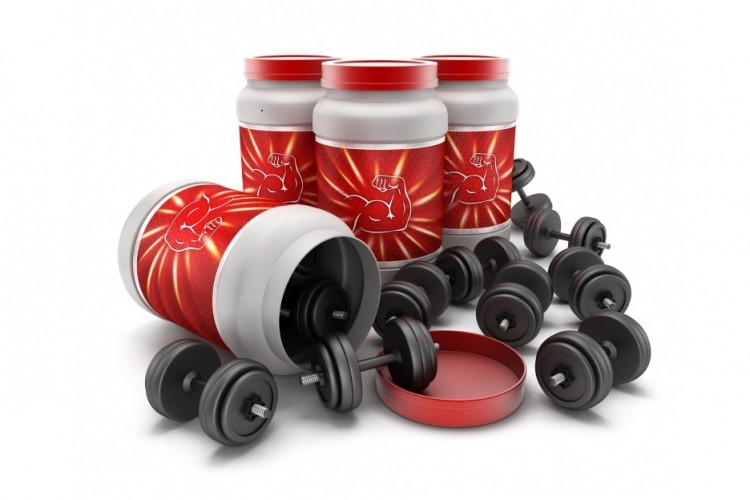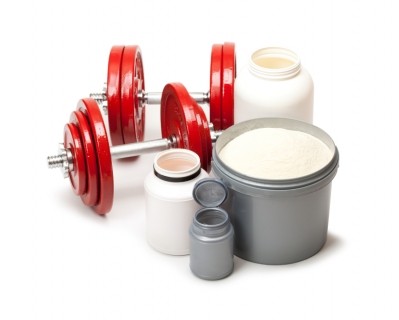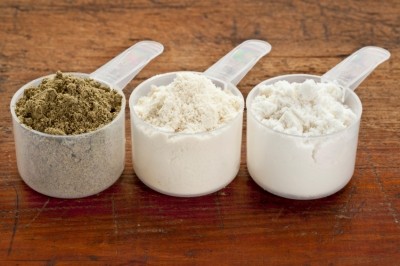Will protein blends surpass singular protein sources for sports nutrition?

The study – funded by Solae and the National Institute on Disability and Rehabilitation Research – compared the use of a blend of soy, whey and casein to provide a complementary amino acid profiles with different digestion rates with a single protein source (whey) for muscle protein synthesis following resistance exercise.
“No research on blends of proteins from different sources and their effects on muscle protein synthesis has been done, to-date,” said Ratna Mukherjea, PhD, nutrition science team lead at Solae/DuPont Nutrition & Health and co-author of the study
“Muscle health is of great concern to not only young and active individuals like the ones in this study but also to the aging population. The role of protein for muscle health is a key area of interest for our company.”
The study’s findings are published in the Journal of Nutrition.
The rise of protein blends?
Speaking to NutraIngredients-USA earlier this week, Jose Antonio, PhD, CEO of the International Society for Sports Nutrition (ISSN), said he expects the sports nutrition category to refine its current offerings, and that he expects “to see more protein blends”.
Commenting independently on the new study, Dr Antonio said the paper “suggests indeed that a blend of casein, whey and soy (50% casein, 25% each whey and soy) is superior to whey alone in promoting protein synthesis in human skeletal muscle.
“Whey has been the 'king' of all proteins vis a vis its application to sports/bodybuilding. I think blends may end up surpassing singular protein sources.
“However, I do caution that we need studies that measure actual body composition (and not just protein synthesis) to verify indeed what protein(s) are the best choices.”
Study details
Led by Blake Rasmussen, PhD, from the Department of Nutrition & Metabolism at the University of Texas Medical Branch, the researchers recruited 19 young adults to participate in their double-blind, randomized, clinical trial.
The participants were studied before and after ingestion of about 19 grams of protein blend (25% Supro isolated soy protein, 25% whey protein isolate and 50% caseinate) or about 18 grams of whey protein. The protein meals were consumed one hour after a bout of high-intensity resistance exercise, and both contained similar amounts of leucine, a key amino acid involved in muscle cell signaling pathways that regulate muscle protein synthesis rates.
"Sources of high-quality protein contain all the essential amino acids and have individual characteristics thought to offer a unique advantage for muscle growth," said Rasmussen.
“This is the first study to test the effects of combining soy with the dairy proteins, whey and casein, for promotion of lean body mass gain."
Results showed that the blend was capable of stimulating muscle growth to a similar extent as whey protein through an elevation in muscle protein synthesis and muscle cell growth signaling.
In addition, the blend prolonged the increase in the rate of muscle protein synthesis from rest for a longer amount of time than whey alone, said the researchers.
Potential for muscle-wasting conditions, too
“Our data […] further support the use of a blended protein supplement following resistance exercise compared with an isolated protein,” wrote the researches.
“A blended protein supplement containing sufficient essential amino acid content, several digestion rates, and a prolonged aminoacidemia clearly promotes muscle protein synthesis during post-exercise recovery.
“Future applications of utilizing protein blends to promote or maintain muscle mass may include studies in aging and other muscle-wasting clinical populations such as cancer patients where the use of blended protein supplement has demonstrated a positive effect,” they concluded.
Source: Journal of Nutrition
Published online ahead of print, doi: 10.3945/jn.112.168021
“Protein Blend Ingestion Following Resistance Exercise Promotes Human Muscle Protein Synthesis”
Authors: P.T. Reidy, D.K. Walker, J.M. Dickinson, D.M. Gundermann et al.















